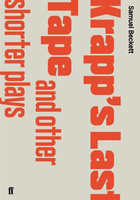Pickings were slim at breakfast the next morning. Apparently the cook had decided to take the day off. Saint was sitting alone at one of the tables in the club, staring into a coffee cup. Corinne and Ada ignored him, sitting on the opposite side of the room. It was a surreal experience for Corinne. Just a few weeks ago the three of them had been sitting at this same table, cutting up about something inconsequential. Ada was teasing Saint about one of the new delivery boys, and Saint was blushing to the tips of his ears. Corinne remembered laughing until she couldn't breathe.
Today she and Ada ate their breakfast without saying much. Ada was sitting with her back to Saint, but Corinne could see that his presence had stiffened her shoulders and tightened the corners of her mouth. Corinne couldn't help but peek past her to gauge how Saint was doing. She had never gone this long without speaking to him before. His expression wasn't as forlorn as she expected, and he was staring hard across the room. She followed his line of sight to the stage, which was empty except for a couple of chairs and a forgotten microphone stand. There was also something white in the center of it that looked like an egg, of all things. It was still too early in the morning for Corinne to wrap her mind around that particular oddity, and when Ada noticed her staring, she looked back at her food without a word.
Gabriel came in at precisely half past ten, looking more awake than anyone else. Corinne couldn't understand how he managed to be clean-shaven at this hour, with his slacks and shirt neatly pressed. He nodded at Corinne and Ada but went straight downstairs, no doubt headed for Johnny's office.
Jackson sauntered in a few minutes later, trailed by Tom Glenn, a drifter whom Johnny had hired a few years back to help with the shipments at the wharf, when they had started coming nightly. Glenn and Jackson were laughing raucously about something. Jackson tipped his cap to Corinne, but she ignored him. He didn't take the hint and came over to their table, resting both his hands on the wood.
"Morning, ladies."
"Morning," Ada said, managing a smile.
Corinne chose to maintain her stubborn silence.
"You look like you've recovered from your stint at the asylum," he said to Ada. "I accept gratitude in cash or check."
He winked at her, and Corinne coughed loudly.
"Gratitude for what?" she said. "I recall being the one in the ridiculous nurse getup, pulling off all the stealth and subterfuge. You just waltzed in at the last minute with your vaudeville imitation of Knox."
Jackson shrugged, unaffected. "Ada was fooled."
Corinne gave Ada an expectant look, and her lips twitched.
"The eyes were wrong," Ada said.
"Exactly," said Corinne.
Jackson looked between them, but both were stone-faced. A united front.
"You two are hard ones to crack," he said at last, moving away from the table.
"That might be the first real compliment you've ever given," Corinne told him.
"My pleasure." Jackson flashed his toothy grin and gave a parting wave.
"I still don't like him," Corinne said to Ada, once he and Glenn were gone.
"I'm not sure you've ever really liked anybody," Ada said, taking a sip of coffee.
"That's not fair. I like you. I like your mother. I like—" Corinne barely stopped herself from saying Saint. Old habits. "I like that baker who gave me a free cupcake that one time."
"He gave me that cupcake, and you stole it." Ada was smiling, giving no indication she'd noticed Corinne's near slip. "Jackson doesn't seem all that bad. Kind of reminds me of you, actually."
Corinne searched for something to throw at her, but she wasn't willing to part with her biscuit. She took a bite of it instead.
"Let's go uptown today," she said around her mouthful. "I've got an idea that might be worth some aces. It's like an abbreviated Carraway coal mine, but with scarves."
Ada looked at her strangely, and Corinne wiped her face, expecting it to be smeared with food. "What?" she asked.
Ada let out a short laugh.
"You've forgotten."
"Forgotten what?"
"You're due at the train station today. It's still school holidays, and your parents are expecting you."
Corinne groaned and dropped her head onto her arms.
"Can't I just telephone them and tell them I fell off a horse during equestrian lessons and the school nurse demands I stay in bed?"
"And risk your parents' driving to Billings Academy to visit you?" Ada raised an eyebrow at her, unmoved by her distress. "You pay the headmistress to send home good reports, but not nearly enough to deal with your parents in person."
Corinne moaned and did not raise her head.
"There, there," Ada said, patting her arm with faint sympathy. "It's better than actually having to attend Billings. Posh food and unparalleled academia. The horrors."
"Snotty debs and itchy uniforms and not a single drop of booze for miles," Corinne corrected. She stood up. "Fine, but I'll be visiting Aunt Maude first thing tomorrow, so I'll meet you here around ten."
"One day you might consider spending more than a few minutes with your aunt Maude."
"You wouldn't say that if you'd ever actually met the woman."
Corinne took her dishes to the kitchen and headed to their room to change. She kept her school uniform folded in a suitcase under her bed. The leather-and-brass case was by far the nicest possession she had, but she touched it only during the holidays. She had been at home for Christmas still when Johnny called to tell her that Ada had been taken into custody. She couldn't even remember the details of the barely coherent lie she'd concocted to convince her parents that she had to leave the next day to return to school. Something about a national Latin competition and the Billings contestant having the flu. If they hadn't been immersed in preparations for their New Year's party, they never would have bought it. Corinne was skilled at taking advantage of her parents' inattention, though. She'd promised to catch the train home in two weeks and escaped before they could come to their senses.
The uniform was a white pleated skirt, white blouse, white stockings, and white Mary Janes. Billings had an obsession with the color. The school motto, Super Omnia Puritatis, "Purity Above All," was emblazoned in various strategic places across the sprawling campus. Since it was located in Pennsylvania, Corinne didn't have to worry about her parents stopping by for a surprise visit, and she used almost all of the money she earned running cons to compensate the headmistress for her role in the elaborate deception that was Corinne's life.
She didn't particularly enjoy lying constantly to her family, but she didn't have any other choice. When her hemopathy had manifested, she had been starting her second year at the academy. She grew too ill to function, barely able to leave her room. A nurse had recognized the symptoms almost immediately, but she hadn't told the headmistress, or Corinne's parents, or even the Hemopath Protection Agency, which was supposed to be notified of all hemopaths so that they could be properly registered. Corinne learned later that the nurse's younger brother was a hemopath, living in seclusion in the countryside, safe from society's fear and hatred.
The nurse had heard the stories of the club owner in Boston who took hemopaths under his wing. She wrote to Johnny Dervish, and a week later there he was: a man dressed like a farmhand who had pockets full of cash that he handed around the ward, buying allies, buying silence. He didn't try to buy Corinne. He explained to her, very simply, what her choices were. She could register as a hemopath, weather her family's disappointment, and spend the rest of her life wearing her affliction as a public brand of shame. Or she could go with him to Boston, to a safe haven where she could develop her talent, where the only rules were loyalty and trust, where she could thrive among her peers.
She had chosen Boston, without hesitation. Her only acts of penance were the occasional visits to her parents' home. A small price to pay for a life of bliss.
She lugged her suitcase up the stairs and went out the front door of the club, rather than risk dirtying her Mary Janes in the alley. After walking a couple of blocks with the suitcase banging against her leg and the cold gnawing through her coat, she started to consider swallowing her aversion to the giant steel traps that were taxicabs, at least for the ten-minute ride to the train station. By the next block, her left shoe had started to rub a blister, and she gave up.
As she searched the street for a taxi, she saw two men at the corner of the block, both in nondescript suits, hats, and overcoats. She might not have noticed them at all except that they were both staring in her direction. Neither was moving. They just stood there. The hairs on the back of her neck stood on end, and Corinne strengthened her grip on the suitcase. Even at this distance there was something unsettlingly familiar about them. Every instinct inside her screamed that she should run, but she took only a single step back. The men still didn't move. They also didn't look away.
A taxicab cruised around the corner, and Corinne flung out her arm so quickly that her shoulder popped. The cab screeched to a stop beside her, and she shoved her suitcase into the backseat before the driver could even climb out to help her. She followed her suitcase and slammed the door shut. The effort to block out the instant throbbing from the steel and iron cost her dearly, but she told the driver her destination and sat back with a forced air of comfort. There was a sign prominently displayed in the front passenger window: NO NEGROES, NO HEMOPATHS. Corinne gritted her teeth against the headache clawing at her skull and peered through the window as they passed the corner where the two men were standing.
They were gone.
Corinne dug her pocket watch from her coat and gripped it in her right hand, like an anchor to her own sanity. She shut her eyes and didn't open them until the cab reached the train station.
The Wellses were expecting Corinne on the twelve o'clock train. The cab dropped her off with only a few minutes to spare, and she ran through the station with her suitcase banging against her thighs. A few people gave her strange glances when she ran to the arrival platform. The train hadn't come yet, and she could see her parents at the opposite end of the platform. She cursed and stepped behind a potted plant. When the train pulled in, she waited until the rush of people disembarking had flooded the station; then she wended her way through the crowd and tapped her father on the shoulder.
"Corinne!" he said. "You always sneak up on us."
"Very light feet," she said. "Those dancing lessons at school have their practical applications."
She dearly hoped her parents would never call on her to display her so-called skills, which the headmistress of Billings detailed in quarterly letters to the Wellses. Corinne embraced them each in turn. Her mother asked about the Latin competition, and Corinne gave purposely vague answers to all her questions, until finally her mother gave up and started telling her excitedly about some fete that had gone better than anyone expected. Corinne tried to listen, but she couldn't stop thinking about the two men outside the club, why they looked so familiar, and Ada's insistence that the Hemopath Protection Agency wouldn't trust the bulls to deal with the Cast Iron. The HPA had been formed by special appointment from the mayor less than a week after hemopathy had been declared illegal. Supposedly the agency's purpose was to ease the integration of hemopaths into society through mandatory registration, but in the past six months, it had become obvious that the HPA was more interested in sweeping hemopaths off the streets for any imagined offense than in helping them integrate into society. Corinne had never come face-to-face with any agents, but if tales were true, they were ruthlessly efficient and handpicked for their heightened resistance to hemopathy.
It was hard to focus on anything with her mother rattling on, and finally Corinne pushed her anxious thoughts aside. She would tell Johnny tomorrow about the incident. He would know what to do.
Her father had driven the Mercedes, and Corinne rode in the backseat, popping three aspirin when her parents weren't watching and trying not to grimace. The taxi and the train station were bad enough without having to ride in the family's metal deathtrap all the way to their estate in the countryside. Perry and Constance Wells lived close enough to society to be involved, but distant enough to still seem important. Corinne had asked her mother once where the money came from, since her father's job as a banker didn't seem lucrative enough for their style of living. Her mother had said it wasn't polite to ask about finances, though Corinne later overheard phrases like "family money" and "old blood." She didn't care enough to ask more, which was something her brother, Phillip, found disgraceful.
"Our name means something around here," he'd told her once. "You should be grateful to be a part of it."
The Wells name didn't mean anything around the Cast Iron or the other clubs—other than the reputation Corinne herself had built. That was all that mattered to her anymore. These holidays at the family estate were just bumps in the road.
Her mother had lunch served promptly at half past one, and Corinne sat down with her parents in the sunroom for sandwiches, fresh tomatoes from the hothouse, and a cucumber drink that she actually quite liked. The Latin competition was not mentioned again, to her relief.
"Where's Phillip?" she asked, once she felt recovered enough to actually engage in her mother's one-sided conversation.
"He's with Angela and her family today," Mrs. Wells said. "I was just saying in the car that he'll be driving back tomorrow morning."
"Sorry, I must have been distracted." At least she would be gone when he returned. She loved her brother, as a sister ought, but that was the only feeling she could conjure. "Like" was not something she'd felt toward him in years.
"I expect you'll give a speech at the rehearsal dinner on Tuesday," her father said. "You've always been good at that sort of thing, Corinne."
Corinne nodded absently before dropping her fork. Rehearsal dinner.
"His wedding is next week," Corinne said.
Her parents exchanged a glance.
"Of course it is, darling," her mother said.
"Don't tell me you forgot," said Mr. Wells. "What sort of environment is that school, if you're too busy to remember your own brother's wedding?"
"I didn't forget," Corinne said, though of course she had. "It just … sneaked up on me."
"Me too," said her mother. "Just yesterday I was remembering that no one has even bothered to ask the caterers if they can come early, because of course we can't expect the florists to set up at the same time, and Phillip is absolutely useless, but he doesn't want Angela being bothered with the arrangements."
Her mother kept talking, but Corinne shared a look with her father and gleaned from his glazed expression that it was all right to tune her out. The rest of the afternoon passed in a dreary, familiar monotony. Corinne refused to let the maid help her unpack, because then her mother would find out that the entirety of her suitcase was a hairbrush and a brick wrapped in a blanket to add weight. She'd sold all her school possessions after moving to the Cast Iron. There were always a few dresses in her closet at her parents' estate to tide her over.
She took a walk with her mother through the rose garden, but after half an hour the winter chill forced them inside. Fortunately her mother was too preoccupied with the wedding to insist on more quality time. Her father had already sequestered himself away in his office, so Corinne had free rein of the house. She headed straight for the study in the oldest part of the house, where most of the construction was wood and brick. It had been her grandfather's when he was alive. He was her mother's father and had come to live with them after his wife had died.
As a child, Corinne would sneak in while he worked and finger the knickknacks on the shelves. Sometimes, when he wasn't busy, he would tell her where they came from. There were wine corks from France, a dagger from Spain, and a crimson quill from the village where Shakespeare was born. Then there was the brass pocket watch from nowhere special, with its simple engraving: Love, Alice. Corinne never knew why it captured her imagination as it did, but she would spend hours sitting at his desk, watching him clean it, learning how to wind it, trying to convince him to tell her who Alice was. Her grandmother's name had been Dolores.
Her grandfather told her many times who Alice was, but every time she was someone different. Sometimes she was a lion tamer he'd met at a circus in Romania, or a fearsome pirate who had boarded his ship in the Adriatic Sea, or an opera singer in Venice who could shatter glass with only her voice. Corinne had never particularly cared to hear the truth. What she loved best were the stories.
All her grandfather's possessions were gone now, packed away or given to relatives. The study was kept furnished but empty. After his funeral, Corinne's visits to her parents' home had dwindled to only holidays and very special occasions. She didn't see the point in coming more often than that, not when he was gone.
Corinne sat in the chair behind the desk and took out the pocket watch. She wanted to clean it, but she didn't have the right supplies. Instead she set it on the desk and traced the etched swirls on the back with her fingernail. She recited a poem by Christina Rossetti, even though there was no one around to see an illusion. She liked the way the words felt on her tongue without artifice. Beautiful and poignant and rhythmic, like the ticking of the watch beneath her fingertips.
Even though Ada knew that it was smarter to stick around the Cast Iron, she didn't want to while away the day doing nothing. Besides, she wasn't about to eat soggy leftovers for lunch when her mother lived only five blocks away.
She pulled on her coat, gloves, and a warm cloche hat. The common room was empty—she, Corinne, and Saint were the only ones living down here right now. Other members of Johnny's trusted circle drifted in and out on the current of their erratic lives. There had been one memorable summer when every inch of floor space was filled with blankets, pillows, and dirty socks.
Today everything was peaceful. The seating area was cluttered as usual, with books and sheet music and half-cleaned instruments. As she walked past Saint's open door, she caught a glimpse of his red hair, but she didn't slow down. The sharp scent of paint and brush cleaner followed her all the way to the stairs.
She knew that someday, somehow, she would have to find a way to at least acknowledge his presence, but not yet. She was still having nightmares about Haversham.
At the top of the stairs, Gordon was in conversation with someone, which was strange enough by itself. What was stranger was that the visitor was Charlie.
"What are you doing here?" she asked him, leaning in for a peck on the lips. Charlie never showed up at the Cast Iron during the day. It wasn't that he wasn't welcome exactly, just that the rivalry between the Red Cat and the Cast Iron hovered between friendly competition and something much more caustic. Several years ago Luke Carson had tried unsuccessfully to edge Johnny out of business. It had escalated from mudslinging to violence in less than a month, ending only when Johnny had shown up at the Red Cat during a performance, sat down right at Carson's table, and calmly promised to burn the club to the ground if Carson didn't back off. That was how the story went, anyway. It was one of Corinne's favorites. Supposedly the two club owners had buried the hatchet since then, but Ada was still careful not to spend a lot of time with Charlie when Johnny was around. Just in case.
"Good morning to you too," he said, his mouth working into a smile. He looked dapper in a brown coat and slacks, holding his hat in his hands.
"Morning," Ada said, heading for the back door. "Did we have plans?"
"Not as such." He skipped ahead of her to open the door. "Hold on—you take care, Gordon, you hear?"
He waved farewell before shutting the door. Gordon returned the wave, which was another first.
"Why does Gordon like you?" Ada asked.
"We've been together for nine months now," Charlie said. "Haven't you figured out that everybody likes me?"
Being best friends with Corinne meant being practiced at looking unimpressed. Ada put on that expression now and crossed her arms. Charlie chuckled and offered her his arm. She wanted to be annoyed at him, but his expression was so earnest and genuine that she tucked her hand under his elbow and walked with him to the street. The alleyway wasn't the most pleasant place to have a conversation, what with the stench of garbage lingering.
"You hear about the raid the other night?" she asked.
"Why do you think I came?" He slipped his right hand over her fingers on his arm.
"We're all fine," she said.
She wanted to tell him about the close call with the cops, but the words curdled in her throat when she remembered the dead look in their eyes as she'd played them into oblivion. Charlie didn't have any family to support, and he made enough money at the Red Cat that he never had to run cons with Carson's crew. Charlie was a songsmith who played hope and joy better than any other feeling. Ada, on the other hand, could make a grown man forget his own mother's face with only a few bars. She could play loss so keen that regs would sometimes fall to their knees and weep. What did that say about her?
"I wish I'd been there," Charlie said.
"I'm glad you weren't," she told him. She coughed around the lump in her throat and realized that she had inadvertently brought them back to the argument they had started and never finished before the show. She worried her lip between her teeth and waited for him to speak.
The street was quiet today, with a crisp cold breeze and a sky the color of a troubled sea. Ada could smell the bakery around the corner, and somewhere distant a child was laughing.
"If you'll tell me why you're mad at me, I'll apologize," Charlie said. "I just don't know what I did."
It took Ada a few seconds to figure out that he wasn't joking.
"You didn't do anything," she said. "I'm not mad."
Charlie pulled her gently to a stop and turned to face her, holding her hand between them. He studied her face intently, as if he couldn't quite bring himself to believe her.
"I never know exactly what you're thinking, Ada," he said at last. "I love that about you, but I also can't help but feel that there's something you aren't telling me. Something you don't want me to know."
Ada wanted to deny it, but she couldn't get the words out. The truth was that there were a thousand things she didn't want him to know. Things that scared her about herself. Things that shamed her. Things she didn't trust to anyone but Corinne. Being with Charlie was easy, and she was terrified of losing that.
"I just want to be with you," she managed to say. That was true, at least. "The rest doesn't matter."
"You told me you wouldn't have wanted my help at the asylum." The accusation in his voice was gentle, but it was there.
"Because I don't want you to get hurt." Because if he risked that much for her, she could no longer pretend that whatever was between them was simple and uncomplicated.
"I want to be there when you need me," he said, gripping her hand more tightly. His brown eyes were golden bright in the daylight. He moved a half step closer, just close enough that she could feel his warmth pressing up against her. "I love you, Ada."
The words were somehow both a succor and a crushing blow. Love had never been on the table before. Love wasn't simple and uncomplicated. Ada wanted to slide her hands around his neck and feel his lips against hers. She also wanted to run away.
She took a step back.
"I have to go see my mother," she said. The heat rising in her cheeks was almost unbearable. She tugged her hand free and shoved it into her coat pocket so that he wouldn't see the trembling. She took another step back, finally daring to meet his eyes. The wound she had inflicted was manifest in his features. Her chest was aching so fiercely that she couldn't breathe.
"Ada," he said, but he couldn't seem to find more words.
"I meant what I said," she told him. "I want to be with you. I just … I have to go."
She walked away from him, her hands deep in her pockets, her eyes to the ground. She counted her steps until tears blurred her feet past recognition.
The Wellses hosted a dinner party for a few neighbors that evening. Corinne wasn't in the mood for high society, but she knew her mother liked to show her off to their friends. Corinne was usually able to fib her way through the awkward conversations, though most of the time she was longing for Ada to be there, playing a song on her violin that would make everyone crave utter silence.
One thing she did enjoy about the parties was that it inevitably meant a new dress. Tonight's number was already hanging in her closet when she arrived. It was midnight blue with silver trim, with sleeves falling well past her elbows and a skirt falling well past her knees, but the cut was so flattering that Corinne didn't mind. She paired it with some black shoes and a long silver chain dotted with pearls. Her short haircut had flabbergasted her parents when she'd first arrived with it; but since then her mother had made peace and even on occasion mentioned how well it suited her round face.
When Corinne went downstairs to greet the guests, she had to remind herself with every step to keep the smile plastered on her face, lest her expression give way to a grimace. The house was old enough that it was predominantly stone and wood. Sometime after Corinne had left for school, her mother had gone on a redecorating rampage and replaced all the old fixtures with the latest styles. Thankfully the latest styles all happened to be brass. Corinne didn't like to think about what stepping inside the house would have been like with its original iron hinges, knobs, and latches. She still had to avoid the kitchen at all costs.
With the guests' arrival, she could sense the iron alloys in their jewelry and cuff links like an ache niggling at the base of her neck. Apparently not all of her parents' friends could afford to wear pure gold and silver to cocktail parties. She could handle a little iron, though. It was the small talk that drained her. After twenty minutes of exchanging inane pleasantries, she was exhausted.
She was trying to decide if it would be worth the effort to fake a fainting spell when her mother grabbed her by the arm and dragged her to greet the newest arrivals. The young couple was only a little older than Corinne, arm in arm, with smiles that had probably taken years of practice to look so genuine.
"James, Madeline, we're so pleased you could make it," Mrs. Wells said, taking each of their hands in turn. She was flustered from all the preparations, and her complexion was splotched with uneven red. If she'd known about the stain on the silk of her dress, she would have been mortified. Corinne decided not to mention it.
"How could we miss our dearest Corinne's homecoming?" Madeline asked.
Madeline Gretsky was tall and proportioned like a catalogue model, with dark curls and cherry-red lipstick that somehow didn't look cheap against her pale face. The Wellses had known Madeline's family since Corinne was in diapers and Madeline was dressing her up in homemade costumes and reenacting scenes from her favorite fairy tales. Madeline's husband, James, had come along a few years ago, wooing high society with his charm despite his solidly middle-class upbringing. James was Madeline's perfect complement, with golden hair, sleepy blue eyes, and a face like poetry. He offered Corinne a languid smile.
"We never see you around the Mythic," he said.
"I go to school in Pennsylvania, remember?"
"Right, right." He wrapped his arm around Madeline's shoulder with lazy ease and kept smiling.
"I'm so sorry that Perry and I haven't made it down to your little theater yet," Mrs. Wells said, her hands fluttering uselessly, as if she couldn't decide what to do with them. "We're so terribly busy, you know. With the wedding."
Corinne snorted. Her parents' refusal to attend a play at the Mythic Theatre had nothing to do with their schedules and everything to do with its less-than-grand premises and reputation for attracting uncouth artistic types.
Madeline's smile was beatific, making a matching set with her husband's.
"It's perfectly all right, Mrs. Wells," she said. "We understand."
"Thank you so much for the invitation," James said.
"Of course," Mrs. Wells said, waving her hands in a way that Corinne thought resembled a frenetic bird. "But you'll have to excuse me. I think the maid mixed up the place settings."
Mrs. Wells glanced toward the dining room in distraction and moved off.
"So wonderful to see you," Madeline said with a dainty wave. She waited until Mrs. Wells was out of earshot, then smacked Corinne on the shoulder.
"What was that for?" Corinne asked, rubbing her arm reflexively.
"Why didn't you come to Glass Staircase in November? You promised you would."
"No I didn't!"
"You said you would try, at least."
"I believe my exact words were: I'd rather jump off the Custom House tower."
"She's right, Maddy," James said musingly, resting his chin on top of her dark hair. "Those were her exact words."
"Oh, hush," Madeline said. She batted him away. "I'm trying to win an argument here. I was a positively thrilling Lucinda."
"I don't know who Lucinda is," Corinne said. "No one has ever heard of your ghastly plays."
Madeline's lip puckered into a pout, and she crossed her arms. She glanced around, but none of the other guests showed any interest in eavesdropping on their conversation.
"James and I are good enough to keep your secret, Cor," Madeline said, dropping her voice to a forceful whisper. "The least you could do is support our theater."
"No," Corinne said as the dinner bell rang. "The least I can do is not tell anyone your secret."
"Another excellent point," James said, still unperturbed.
Madeline rolled her eyes but didn't seem to have a retort. Corinne took that as a victory and led the way into the dining room with a smile.
The dinner portion of the evening was more or less predictable. Corinne was an expert at having food in her mouth every time someone asked her a question about school. Madeline was called upon to regale the table with tales of her studies in Paris, which Corinne was grateful for. Not only did it distract the guests, but it kept Madeline from provoking her—one of the older girl's favorite pastimes. James did lean over at one point during a particularly flamboyant segment of Madeline's story and ask Corinne about Ada and Saint.
"Ada's fine," Corinne said, and frowned. "I thought Saint would have been spending his time at the Mythic. He hasn't been around much since—"
She cut herself short, and James raised an eyebrow. Before he could ask anything further, Madeline called on him to do his impression of the French prime minister.
"He's better at being Clemenceau than Clemenceau is," she told the table, eyes bright with laughter.
James winked at Corinne and obliged, donning a ridiculous French accent and somehow capturing the essence of a walrus mustache with just his expression. Their conversation was quickly swept away by the merriment of the guests.
Once the party had adjourned to the parlor, Corinne took her usual spot in the northwest corner, which was the farthest from any iron and kept her headache to a dull roar, easily silenced with some aspirin and a few swigs from her hip flask when no one was looking. She was in the middle of a furtive sip when someone slapped her back roughly.
"Please tell me that's medicinal," came the booming voice.
"Phillip," she said through her coughing. She barely had time to stash the flask before her mother breezed across the room, arms wide to embrace her son.
"Phil, when did you get here?" Mrs. Wells cried. "You slip in without even a word? Where's Angela?"
Her questions went unanswered for a few minutes as the other guests noticed the new arrival. There were handshakes all around and congratulations on his upcoming nuptials. Corinne was trapped in the corner behind the tall bulk of her brother, and she eventually just sank onto an ottoman to wait it out. After declining dinner and wine and cheese and everything else their mother tried to shove at him, Phillip finally took a seat. He shared their mother's brown hair, though his eyes were blue like their father's. He'd inherited all the height in the family as well, towering even over Mr. Wells. When she was younger, Corinne had started a game with herself, trying to keep count of the number of times people told the Wellses how dashing their son was. She'd lost count somewhere in the hundreds.
"Angela's staying with her parents until tomorrow," Phillip said, completely comfortable under the weight of the entire party's attention. "She wanted me to come early to help Mother with the final preparations."
Corinne couldn't suppress a snort of laughter at that.
"And to spend time with family that's coming in," he continued. He leaned over to muss Corinne's hair with just a little too much force to be tenderly affectionate. She jerked away from him and almost fell off the ottoman. He knew how much she hated when he did that.
"She's so considerate," Mrs. Wells said, beaming with pride at her son's choice of bride.
Corinne ran her fingers through her hair and thought it much more likely that Phillip was tired of Angela's family, but she wasn't keen on being pulled into the tedium of wedding preparations. As far as Corinne could tell, Angela was much more comfortable dictating her preferences from a tea table at a country club.
The conversation ran swiftly toward the stress on young brides and from there on to the economy and which neighborhoods were going downhill. Corinne lost its thread for a while, so she was caught off guard when the discussion suddenly turned to hemopaths and the Harvard Bridge.
"Are the police even trying to find them? Surely out of all the people on that bridge, someone remembers them."
"It'll be the Hemopath Protection Agency that's after them, not the regular police."
"Charlotte Dower said her cousin was there, and he barely remembers a thing. Still swears up and down those elephants must've been real."
"I've been saying for years that hemopaths are a danger to us. If they know how to get inside your head like that, what's to stop them from doing it all the time?"
"Is the law even enough to stop them? I've heard they still host those parties in secret. The police can't shut them all down."
"Maybe the ironmongers have the right idea."
The man who said that was one of her father's business partners. An uneasy silence fell over the room at the suggestion. The masked vigilantes who kidnapped hemopaths from their beds were hardly a topic for civilized conversation. Corinne squeezed her hand into a fist and concentrated on the pain of her nails cutting into her palm.
"There's no need for anything like that when there's Haversham Asylum," said one of the women from her mother's bridge club.
"Did you hear that some hemopaths are petitioning the governor to shut it down?"
That set off a new flurry of titters. Corinne had to hold her breath to keep herself in check. She knew where the conversation would go. She'd heard it so many times, it was like a hated song on a phonograph that she'd memorized completely but never learned not to despise.
"They say there's torture going on there. Some kind of experimentation." The man speaking was trying to sound informational, but he obviously just wanted to scandalize everyone.
"Torture? In Boston? We're not the Bolsheviks."
"Can you imagine the nerve, petitioning against a prison that was built solely for their comfort?"
"Judging from the crime rates, they should be expanding the asylum. Phillip, maybe you can talk to Angela's father about that."
"Yes, I've told him as much," Perry Wells said, placing a hand on his son's shoulder. "If you're serious about running for office, that's your campaign platform right there."
Her father was not a man of many words, so each one of those cut Corinne to the quick. Her father had no idea that she was a hemopath, of course. That didn't make it hurt any less to hear him talk about the asylum in such generous terms.
Her brother just shook his head, his lips turned up in a slight smile. Corinne watched him closely, though part of her wanted to find an excuse to leave the room.
"It's an interesting situation, that's for sure," Phillip said. A standard answer for polite society. "Seems like a better platform might just be reminding voters that our esteemed Councilman Turner paid twenty-five hundred in taxpayer dollars to a couple of hemos for a poem and a song."
"Twenty-five hundred?" Corinne echoed before she could stop herself.
Phillip cocked his head at her, his eyes bespeaking a hidden amusement. "To the penny," he said. "I play golf with one of the city accountants, and he saw the requisition."
"A disgrace," said her father, shaking his head.
"Indeed." Corinne pressed her hand to her lips to conceal a smile. She and Ada had conned Councilman Turner out of only two thousand, meaning that five hundred dollars had mysteriously vanished. Johnny would be interested to know that the councilman was skimming off the top. That kind of information had value.
"Well, surely that's enough of this topic," Mrs. Wells said, her hands twitching nervously in her lap. She hated anything that verged on controversy, so touching hemopathy and politics in the same conversation was a social catastrophe.
Corinne had never been so grateful for her mother's delicate sensibilities.
"Mother's right," she said. "Next thing you know, we'll be talking about anarchism and women's suffrage and racial equality, and then the gates of hell might open up right in this parlor."
There were a few titters at that, but most people looked at their feet in awkward silence. Corinne wasn't sure why she felt quite so pleased about that. Only Madeline was still looking at her, lips quirked in amusement. James was shaking his head, perplexed either by her manners or by his wife's tacit approval of her manners. Suddenly Phillip laughed, a thunderous sound that always made Corinne jump. He probably would have tousled her hair again if she hadn't been subtly scooting the ottoman farther and farther away from him.
"You'd think a school like Billings would be able to train the sarcasm out of you," he said. "I thought Father was paying for a proper young lady."
"All the tuition goes to bleach for the uniforms," Corinne said.
A few people laughed at that, and the conversation moved on. Corinne stared defiantly at Phillip until he looked away. She hated how he always wore that smug expression, even when she had clearly bested him.
Though the party had been about to break up, Phillip's arrival had given it new life. Corinne stopped trying to appear engaged and started fantasizing about giving a poetry recital and making everyone think that the house had been overrun with badgers. She couldn't, of course. Without Ada here to lay down a fog on their memories, they would realize she was a wordsmith immediately. The scandal of the Wells girl being a hemopath would hit the papers by morning, and by the next evening there would be no place left on the Eastern Seaboard for her to live in peace.
When a maid slipped into the room to tell her she had a phone call, Corinne leapt off the ottoman so fast that she almost tripped and landed face-first on the Persian rug. She took the call in the hallway and was surprised to hear Ada's voice on the other end. No one from the Cast Iron ever contacted her at home.
"You'd better get back here fast" was all Ada said. She hung up.
Corinne stood dumbly for a few seconds before dropping the receiver in the cradle and sprinting toward the chauffeur's cottage behind of the house. He answered the banging on the door after a couple of minutes and promised to have the car around front in ten minutes.
Corinne didn't know what she was supposed to tell her parents. There was a sick feeling in her gut that she couldn't shake. In the end she cornered her father, who was less apt to ask questions, and told him that her friend in the city was grieving the loss of a dear cousin and needed her support. He was confused but didn't try to stop her from leaving. She didn't bother saying good-bye to anyone, even though Madeline was eyeing her suspiciously, and she slipped out the door before her mother noticed.
Ada's mother was baking p?o, filling the apartment with the warm aroma that reminded Ada of the birthdays and holidays of her childhood. Ada liked sitting at the table, kneading dough while her mother kept an eye on the bread in the oven and told stories about Mozambique. Her mother was tall and graceful, with high smooth cheekbones and lips made for softly whispered bedtime stories. When Ada was young, she would sleep on the sofa in their tiny one-bedroom apartment. She loved her mother's stories, but what she loved most was looking past her mother into the darkness of the bedroom doorway, where her father would stand, his face pale in the moonlight as he swayed gently to the cadence of her voice.
The day her father was convicted for a crime he didn't commit, Ada had gone to Johnny Dervish and asked to join Corinne on one of her cons. Even though she'd been living in the Cast Iron and playing shows for two years, she'd always refused to be a part of the club's less-than-legal side operations. But when she and Corinne worked together, it was magic, and it took her only six months to move her mother to a nice flat and fill it with stylish furniture and colorful drapes and ornamental figurines. None of it could make her mother happy, but that didn't stop Ada from trying. Even with Johnny's connections, she couldn't free her father from prison, and she couldn't bring herself to leave the Cast Iron.
So instead she visited her mother once a week, sometimes more, and helped bake and listened to stories about a beautiful African queen named Nyah and the scrawny prince named António who sailed to her lands from a faraway country. She told how the prince was afraid of snakes, though he pretended he wasn't, and how he would sing to her, though he couldn't carry a tune. She told how he fell in love with her, and she with him, and how they decided to run away together to a new country, full of promises.
Sometimes she told about the beautiful princess they had in this new country, a princess who could evoke purest joy or deepest sorrow with just her violin, a princess who could crumble kingdoms with a song.
The stories always stopped there. Ada never asked her to go on. She knew how the real story ended.
"And how is Corinne?" her mother asked, leaning over her shoulder to prod the dough.
"Still getting me into trouble every chance she gets," Ada said.
Her mother smiled. She liked Corinne, who always devoured her bread and stories alike.
"She is a very strange girl," said Nyah. "Strange and clever."
It was the same epithet she always gave Corinne. Ada had relayed that to Corinne once, and Corinne had laughed so hard she fell off the bed. That night she had introduced herself onstage as Corinne the Strange and Clever, Master of Illusory Delights. Johnny had snorted his drink out his nose.
When the phone rang, Ada was on her second hot p?o roll, which she ate by itself despite her mother's insistence that it wasn't a proper meal. Her mother was elbow-deep in suds, washing dishes, so Ada reluctantly abandoned her food and snatched the phone off the cradle on the fifth ring.
"Ada, I need you and Corinne. Get here as soon as you can."
"Johnny? Johnny, what's wrong?"
"As soon as you can," he repeated. "Be careful." He hung up. Ada grabbed her coat and hugged her mother good-bye.
"Wait—I wanted to talk to you about something," Nyah said, grabbing her wrist with a soapy hand.
"I can't, Mama. I have to go."
"You have time for your mother." Her voice was sharp, which was distinct enough that Ada hesitated. The rare times when Nyah was angry, she bellowed Swahili and threw dish towels across the room. The rest of the time she was all grace and tenderness. There was no in-between.
"What's wrong?" Ada asked.
"You told me months ago that you were going to come back home. You cannot live in that … place for your whole life."
Ada hesitated. She'd told her mother that to appease her, thinking she would forget about it. This apartment that she'd rented and carefully filled with tiny luxuries for her mother was not Ada's home. Once her home had been a tiny one-bedroom, with her mother baking and her father coming in late from his clerking job, bearing fresh flowers and a sheepish smile as an apology, but those memories were distant and hazy now.
One day almost four years ago, Nyah had called her at the club, frantic because the police had dragged her husband away in handcuffs. What came next was a haze of meetings with a lawyer and trips to the courthouse. Ada knew her father hadn't stolen any money from his employer, but she also knew that whoever had was probably long gone by now, and the police weren't interested in digging further. The jurors had heard her father's accent, still stubbornly strong after so many years, and they had studied Ada and her mother with varying expressions of suspicion, confusion, and disgust. Then they had declared António Navarra guilty.
She hadn't seen her father since that day in court. She had tried visiting him in prison with her mother, but there was too much iron. She couldn't even make it through the front doors. Two different appeals had been overturned, and even though Corinne had offered on multiple occasions to help Ada mastermind an escape, Ada knew her father would never agree to such drastic measures. He was a law-abiding man, even when the law had betrayed him.
There was only a year left to his sentence. Ada sometimes felt guilty at how fast the time had flown—she was sure that the years had not been as kind to her father. Her mother brought letters from him regularly, and Ada responded as often as she could, but there was only so much she could tell him about her life. Ada's home was the Cast Iron now, and she'd promised to keep its secrets.
"I can't leave the club now," she told her mother. "It's the only place that's safe."
Nyah snapped something in Swahili that Ada suspected was a curse. Her parents had spoken Portuguese to each other when she was growing up, so the only words she knew in her mother's native tongue were from the bedtime stories.
"I read the newspaper stories about the police raids," Nyah said. "Eu sei o que se passa ali."
"N?o te preocupes, Mama. Johnny knows what he's doing." Ada slipped her arms into her coat and started toward the door.
Her mother said something else, this time in Swahili. Ada paused with her hand on the doorknob.
"What?" she asked, trying to keep the impatience from her voice.
"I said you put too much faith in that man."
"He's never let us down."
More Swahili. Ada left and slammed the door behind her.















